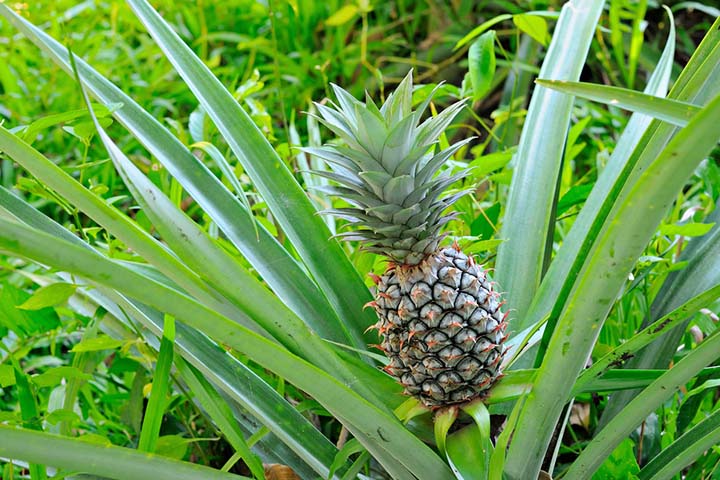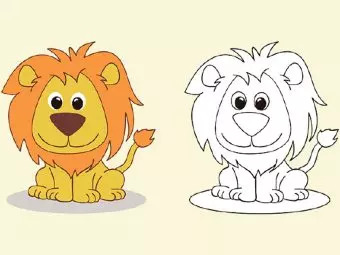
Image: Shutterstock
Children are like a sponge. They enjoy learning new things every day. And, fun facts for kids can feed their curious minds. While some kids grasp information quickly, others take their sweet time to learn. Learning through fun facts makes the process easy and engaging.
To intrigue your child’s curiosity, here is a list of fun facts on various subjects such as space, history, science, literature, flora, and fauna.
Fun Facts For Kids Under 5
- Cows and horses can sleep (lightly) while standing.
- Slugs have four noses.
- You cannot stand on a cloud. If you ever try, you will fall through it.
- A giraffe’s tongue is so long that it can even lick its ears.
- Dragonflies cannot walk despite having six legs.
- Snakes cannot blink their eyes as they do not have eyelids.
- You cannot lick your own elbow. Try it!
- A tiger’s skin, as well as fur, has stripes.
- The size of a child’s heart is equal to the size of their fist.
 Did you know?
Did you know?- The only mammal that cannot jump is an elephant.
- Human teeth are as tough as a shark’s teeth.
- Babies have a greater number of bones than adults.
- A starfish does not have a brain.
Image: Shutterstock+++++
- Cats can sleep for more than 16 hours a day.
- Sharks have no bones in their body.
- You can’t sneeze with your eyes open.
- Your nose gets a little warm when you lie.
- Crocodiles cannot stick their tongue out.
- A Shrimp’s heart is located at the bottom of its head.
- Pigs cannot look up at the sky.
- Sharks are the only fish that can blink.
- The eye of an ostrich is bigger than its brain.
- Giant squids have the largest eyes in the world.
- An average person falls asleep in seven minutes.
- Kangaroos cannot walk backward.
Fun Facts For Ages 5 To 10
- Giant pandas can eat around 28 pounds of bamboo every day.
- Peanut oil is one of the key ingredients in making dynamite.
- The shortest war in human history lasted for only 38 minutes.
- Wild seals are the only animals that can clap.
Image: Shutterstock
- The milk of the hippopotamus is pink in color.
- Nails grow faster in summer.
- The solar system was formed over 4.6 billion years ago.
- Snails can sleep at a stretch for up to three years.
- Some fish can also cough. They cough to clear out their gills from dirt particles and bacteria.
- There are around 10 million species of insects on Earth.
- Dolphins are the only animals that can shut half of their brains while sleeping.
- A woman’s heart rate is faster than men.
- A cat’s urine glows under black light as it contains phosphorous.
- Sneezing too hard could fracture your rib.
 Quick fact
Quick fact- The only English word that ends with “mt” is “Dreamt.”
- A dime has 118 ridges.
- Pineapple plants take about two years to grow into their full size.
Image: Shutterstock
- Earth’s core is hotter than the outer layer of the sun.
- The days of Neptune are 16 hours long.
- A cough travels 60miles per hour, while a sneeze travels 100 miles per hour.
- Tomatoes are fruits, not vegetables.
- The left brain controls the right side of your body, while the right brain controls the left side of your body.
- The only digit that has the same number of letters is 4.
- Your nose and ears keep growing during your entire life span.
- Snails have 14,000 teeth.
Fun Facts For Ages 10 To 13
- Your brain can use up to 10 watts of energy for thinking.
- Glass balls can bounce higher than rubber balls.
- Vatican City is the smallest country. It covers up just 0.2 miles.
Image: Shutterstock
- A bat can eat 3,000 insects every night.
- The pupils of goats are horizontal, not circular.
- A year has 31,556,926 seconds.
- Diet soda cans float in water, whereas regular soda cans sink.
- Your brain uses 20% of the oxygen you breathe.
- The speed of a tsunami wave is almost the same as the speed of a jet plane.
- The largest internal organ of your body is your small intestine.
- The word “assassination” was first used by Shakespeare even though it existed for several decades.
- The Sahara Desert is the hottest desert in the world, with a maximum temperature of 58 degrees centigrade.
- A human heart beats more than 1,00,000 times in a day.
- Your body is made up of approximately 37 trillion cells.
- Tuna fishes can swim at a speed of 43 miles per hour.
- Like fingerprints, your tongue prints also vary.
- Almonds come from the family of peaches.
- Cats have 32 muscles in each ear.
- The tongue is the strongest muscle in the human body.
- Plastics take 450 years to decompose.
Image: Shutterstock
- The full name of Los Angeles is “El Pueblo de Nuestra Senora la Reina de los Angeles de Porciuncula.”
 Trivia
Trivia- It is normal to lose 50–100 hair strands each day.
- Rainwater contains Vitamin B12.
- The sentence that uses every letter of the English alphabet is “The quick brown fox jumps over the lazy dog.”
- You cannot taste food unless it gets mixed with your saliva.
Frequently Asked Questions
1. What are the benefits of learning fun facts for children?
Fun facts can help improve a child’s knowledge by providing fascinating and engaging information that is simple to remember and understand. These facts can also help children learn about new topics and ideas, expand their vocabulary, and develop an interest in various subjects.
2. How can teachers use fun facts to engage their students?
Teachers can use fun facts as a creative way to introduce new lesson plans, grab their students’ attention, pique their interest in the topic, and encourage students to ask questions.
3. What are some of the best resources for finding fun facts for children?
Plenty of books and online resources are available where you can find fascinating fun facts for children.
4. How do fun facts help children understand the world around them?
Different fun facts regarding the culture, traditions, foods, languages, various geographical locations, and countries can encourage children to understand or explore more about the world around them.
These fun facts for kids about humans, different animals, history, and surroundings can enlighten your children about many fascinating pieces of information. With age-specific divisions of these facts, you can provide them with the appropriate information as they grow and learn. You may try turning these into a Q&A format for a more exciting approach. Let them have a fun learning time and utilize these facts to make your children aware and knowledgeable.
Key Pointers
- Snakes cannot blink since they do not have eyelids.
- You cannot lick your elbow, no matter how hard you try!
- The only animals on the planet that can clap are wild seals.



















